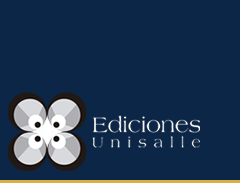Title
Access to Public Information: Approved Guidelines vs. Installed reality. Construction of Citizenship and Opposite Rights
Resumen
Uruguay, al igual que otros países de la región, se ha comprometido con la aprobación y la aplicación de un marco legal que ubique al ciudadano en el centro de todas las acciones, destacando sus derechos y facilitando tanto el cumplimiento de sus obligaciones como su participación. Esta iniciativa alcanzó la protección de datos personales, la regulación de la firma electrónica, además del acceso a la información pública y una ley nacional de archivos. Uruguay es el único país de América Latina donde la iniciativa de estas dos leyes surge desde la sociedad civil. En particular, se destaca que, en el proceso de su redacción y su difusión, fue realizado al mismo tiempo por un equipo de profesionales y ciudadanos preocupados por estos temas. Poner en práctica la Ley de Acceso a la Información Pública puso en jaque a todos los organismos públicos, alerta que también se supuso provocaría la Ley de Archivos. Sin embargo, aún no se tiene la madurez para aceptar la importancia que conllevan. Sin ellos no hay organización en los documentos; por ende, no hay acceso a la información, y sin acceso a la información no hay democracia posible
Palabras clave
acceso, información, archivística, transparencia-profesionalización de los archivos
Abstract
Uruguay, as well as other countries in the region, has committed to approve and extend a legal framework to place human beings in the center of all actions, highlighting their rights and facilitating the fulfillment of their obligations and their participation. This initiative has reached the protection of personal data, the regulation of the e-signature, access to public information and a National Records Act. Uruguay is the only country in Latin America where the initiative of these two laws comes from civil society. Specifically, it is important to highlight that the process of its writing and communication was performed at the same time by a team of professionals and citizens concerned by the matter. The Access to Public Information Law challenged all public organisms, and the same thing was supposed to happen with the Records Act. However, there is still not enough maturity to accept their importance. Without these, there is no document organization and therefore no access to information, and without access to information there is not possible democracy
Keywords
Access, information, archival, transparency, professionalism of files
Fecha de recepción
23 de septiembre de 2012
Fecha de aceptación
15 de agosto de 2012
Fecha de publicación
2012-12-01
Licencia Creative Commons

This work is licensed under a Creative Commons Attribution-Noncommercial-No Derivative Works 4.0 License.
Tipo de documento
Artículo de Investigación
Editorial
Universidad de La Salle. Ediciones Unisalle
Citación recomendada
Ramos Volonterio, Ma. de Lourdes
(2012)
"Acceso a la información pública: normativa aprobada vs. Realidad instalada. Construcción de ciudadanía y derechos encontrados,"
Códices:
No.
2
, Article 3.
Disponible en:


